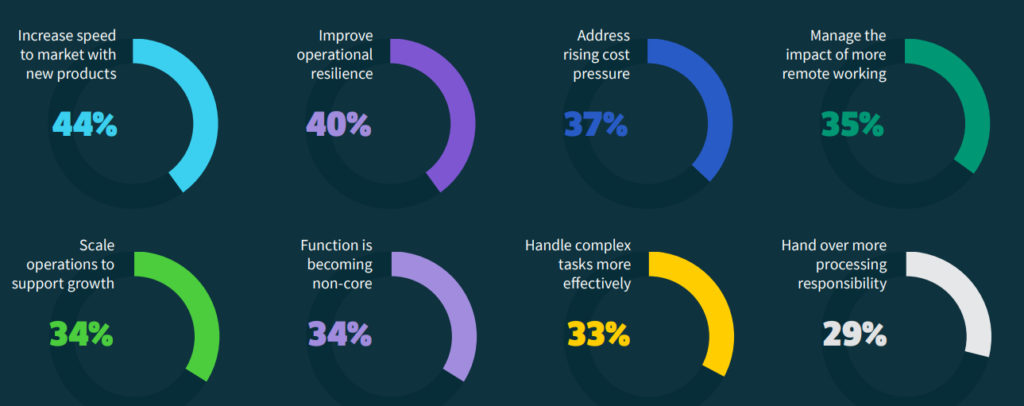Capital markets are one of the most fascinating areas of investment banking. Companies need these services when they are about to go public or want to issue debt sold to the public.
Despite the COVID-19 pandemic and its impact on most economies, Refinitiv says the global capital markets enjoyed their strongest ever six-month period in the first half of 2020, raising US$5.5 trillion globally. At a 35% year-on-year increase, this is the highest figure since records began in 1980 with the number of offerings exceeded 130,000 for the first time.

Following the release of the FIS Growth 2020 report, Pulse Survey II results, FutureCIO spoke to Tara Winters, head of Global Managed Services at FIS, for her thoughts on Asia’s shifting attitude towards outsourcing and cloud-based services.
The FIS report says there is an uptake on cloud and managed services. Can you cite examples of applications moving to this compute model?
Tara Winters: We have been seeing an uptick in managed services even before the pandemic. Companies are looking to focus more on their core businesses and delivering for their clients. It has become more of a trend for companies to outsource certain functions to a provider like FIS.
We sold our first cloud solution in Asia in 2014. It was an insurance application for risk modelling and the driver for that insurance companies in Asia were launching new products to market. Also, new companies were coming into Asia and they needed a fast way to get up and running. The cloud gave them that capability.
Do you see any resistance to move core systems to the cloud, and why?
Tara Winters: I do think that there are still areas where clients have been more reluctant to move into Cloud, and they feel more comfortable with running their own data centres, but I do see that changing.
Areas where traditionally clients would not consider outsourcing, especially areas where maybe there is PII personal identifying information or competitive information. They are more reluctant to give up that control of the data centre.
But I see that [attitude] changing a lot over the last couple of years. I think we are going to see even more change in this area, given the pandemic.
Is there anything unique to the outsourcing trends in Asia?
Tara Winters: I do think that Asia tends to be very cost-conscious. That is something that we've run into. That, and initially as we were moving more to manage services offerings with FIS, we saw a big uptick in Asia because they were moving away from CapEx already.

There was a desire to spread payments to have a very predictable budget cycle and that type of thing as opposed to that lumpiness of “I've got to go buy a software and pay all this money for the license fee and all of that” and that was not popular in Asia at least since I have been working in Asia.
Given that not all regulators are cloud-friendly in Asia, how does this affect local and regional players when it comes to executing a cloud infrastructure?
Tara Winters: I know that, in Asia, when you think of Asia you think of so many countries. However, a lot of people think it is more homogenous, but there are so many different countries and cultures and regulatory bodies and so you really have to think of Asia country by country.
I think regulators are trying to make sure that security is around the data. They want data to remain in the country. The data privacy laws that have gone into effect are important.
For us, it means working with local regulators, it means working with partners who are local in the region, so we can make sure we understand what those concerns are.
We certainly had clients that wanted to go to the cloud. They had a business rcase but they were having challenges with the regulators.
We have met with the regulators with local cloud partners and the clients, all together, to understand what the requirements and the concerns are so that we can address those properly.
I think having local partners, having some of the cloud providers that have a lot of capabilities throughout the region has been very helpful for us.
In 2021 what do you anticipate will be trending among capital market firms in Asia?
Tara Winters: I think that we are going to see a continued move to cloud for the reasons that we've talked about. The move from CapEx to OpEx. The need for flexibility.
Some of the things that we have seen in capital markets is a lot of volatility in the markets and we are seeing trading volumes like five times what we would see in normal circumstances.
Those types of unpredictable activities will continue to drive more companies to look at moving to the cloud so that they can get that flexibility that they require, and again get the cost of benefits as well as the resiliency.
What is your advice for organizations considering moving their core systems to the cloud?
Tara Winters: I think for companies that are just looking to move to the cloud, expect that some changes will need to happen. It is therefore good to have someone has experience to help identify the challenges.
There are others as well that just need to be taken into consideration. I think finding a good partner that has experience is a good way to get started.




